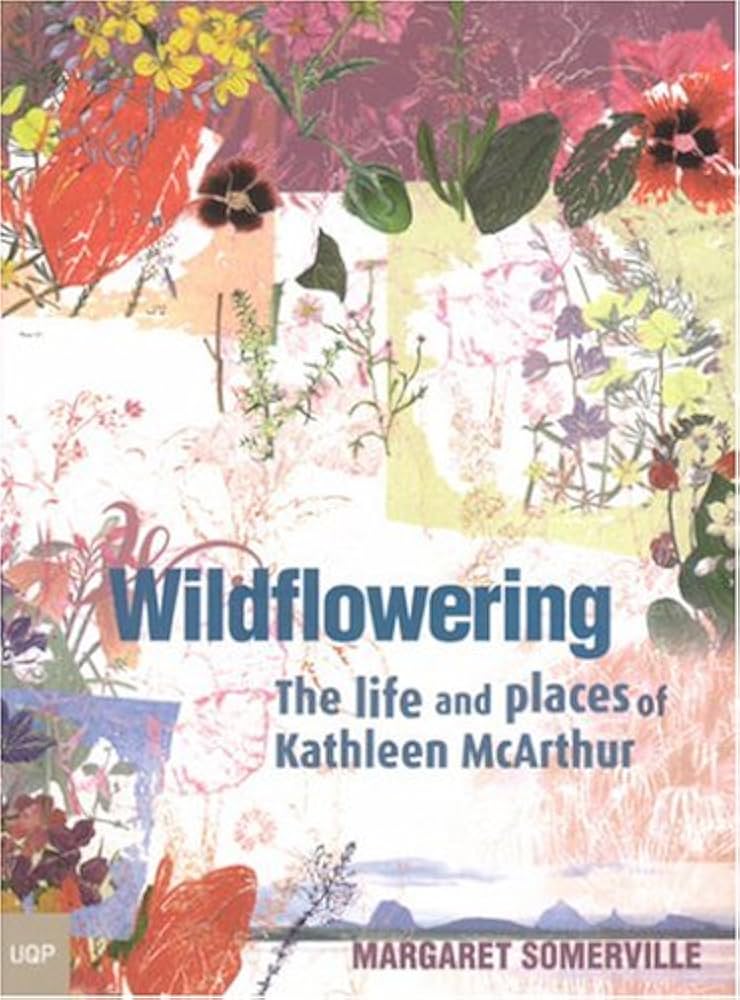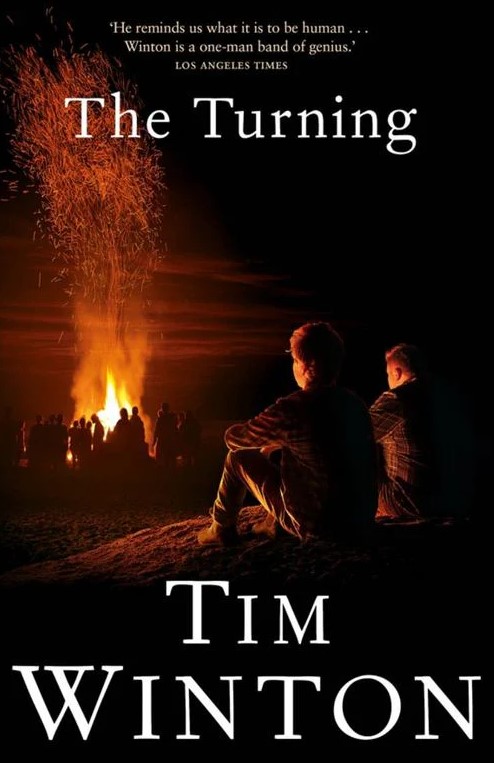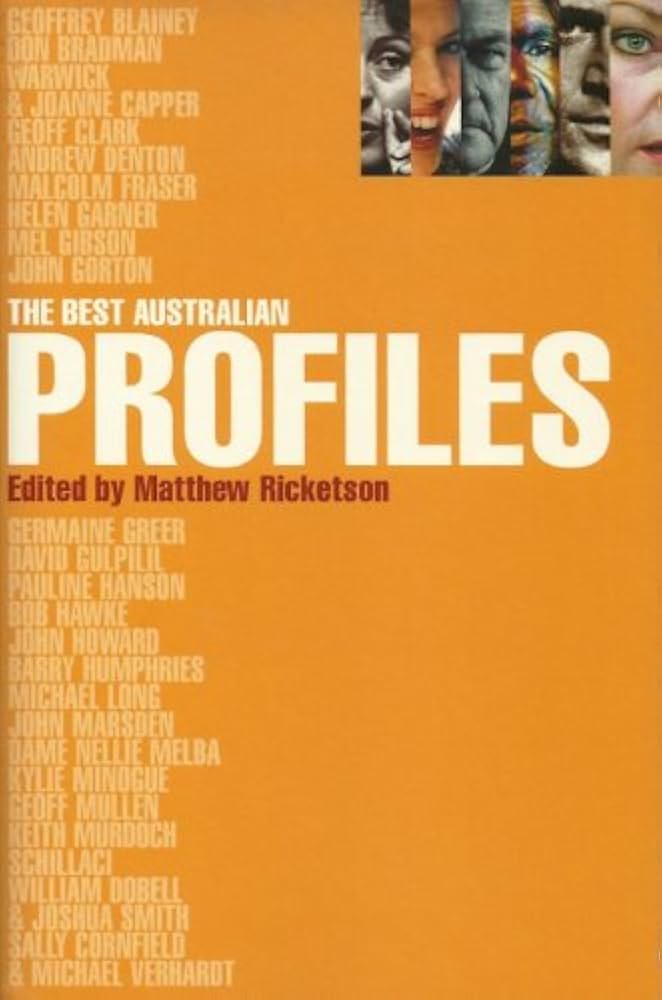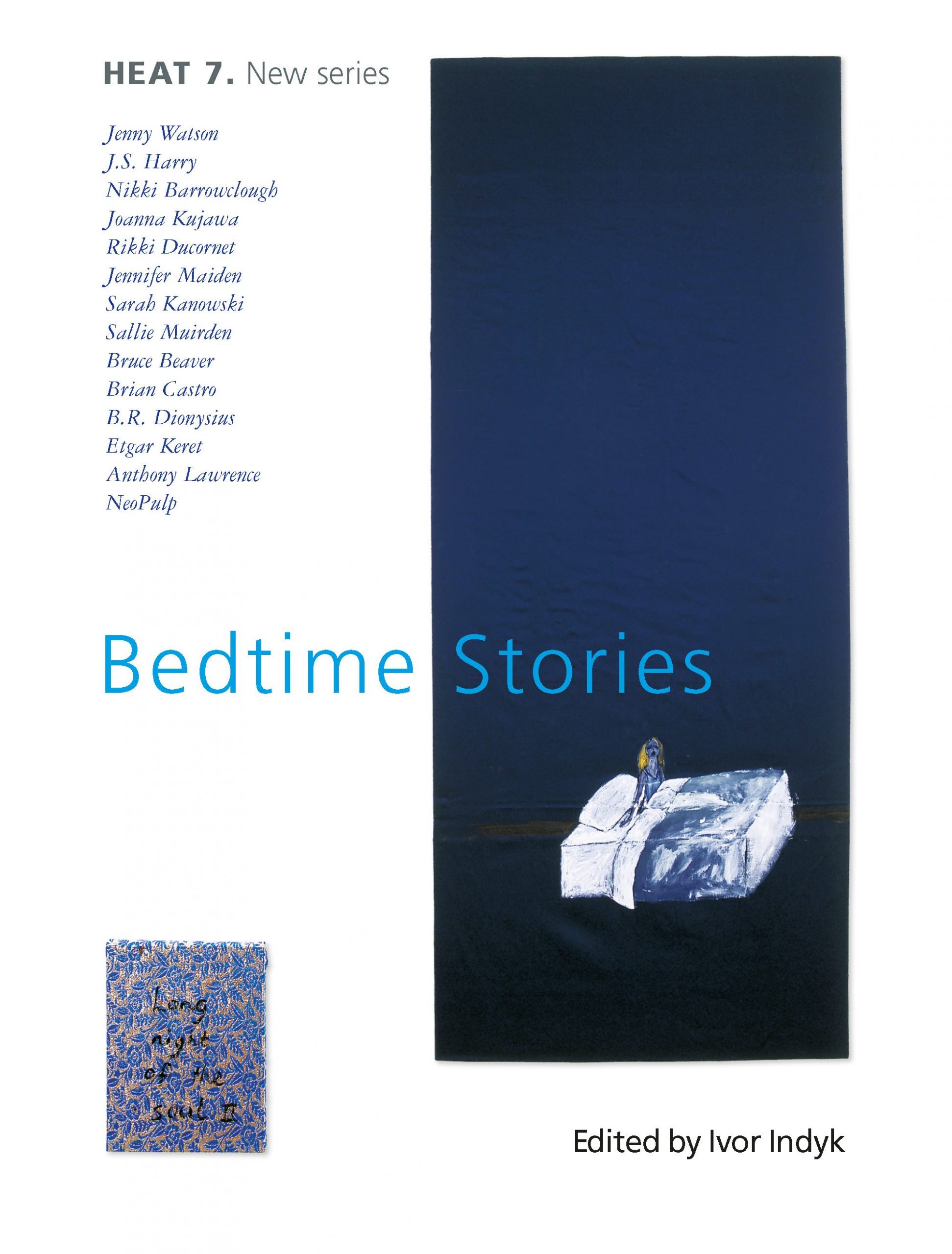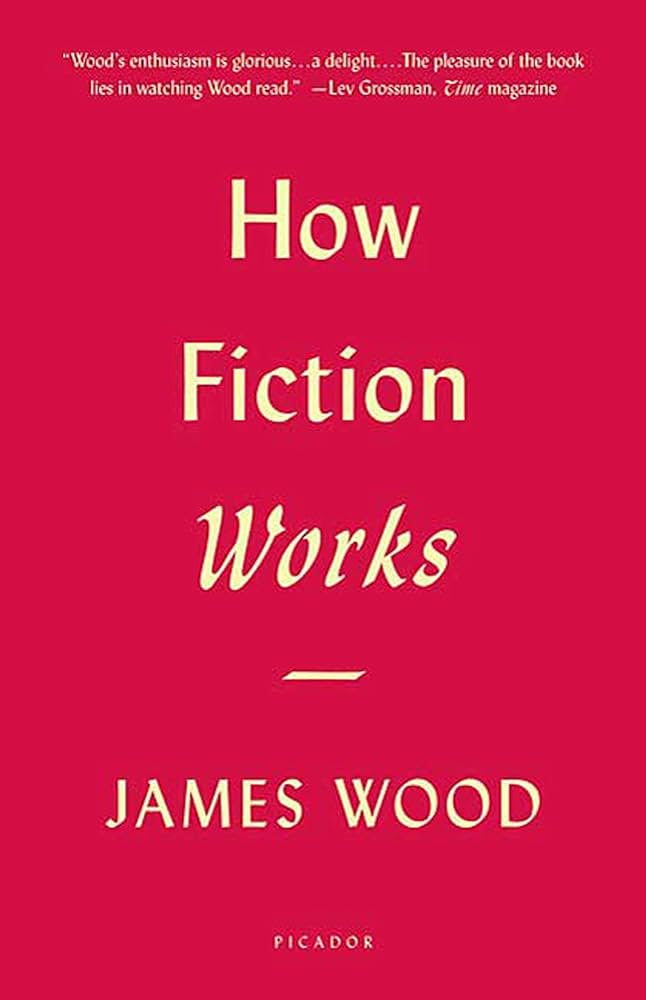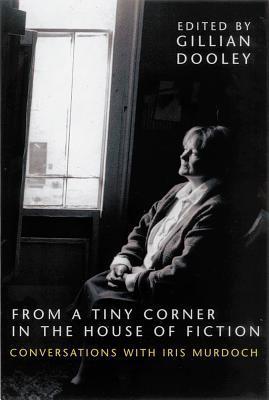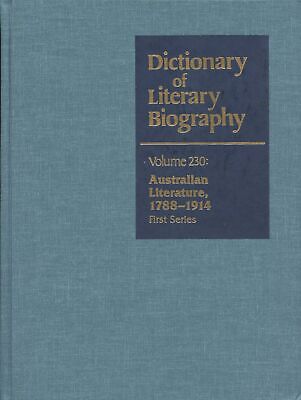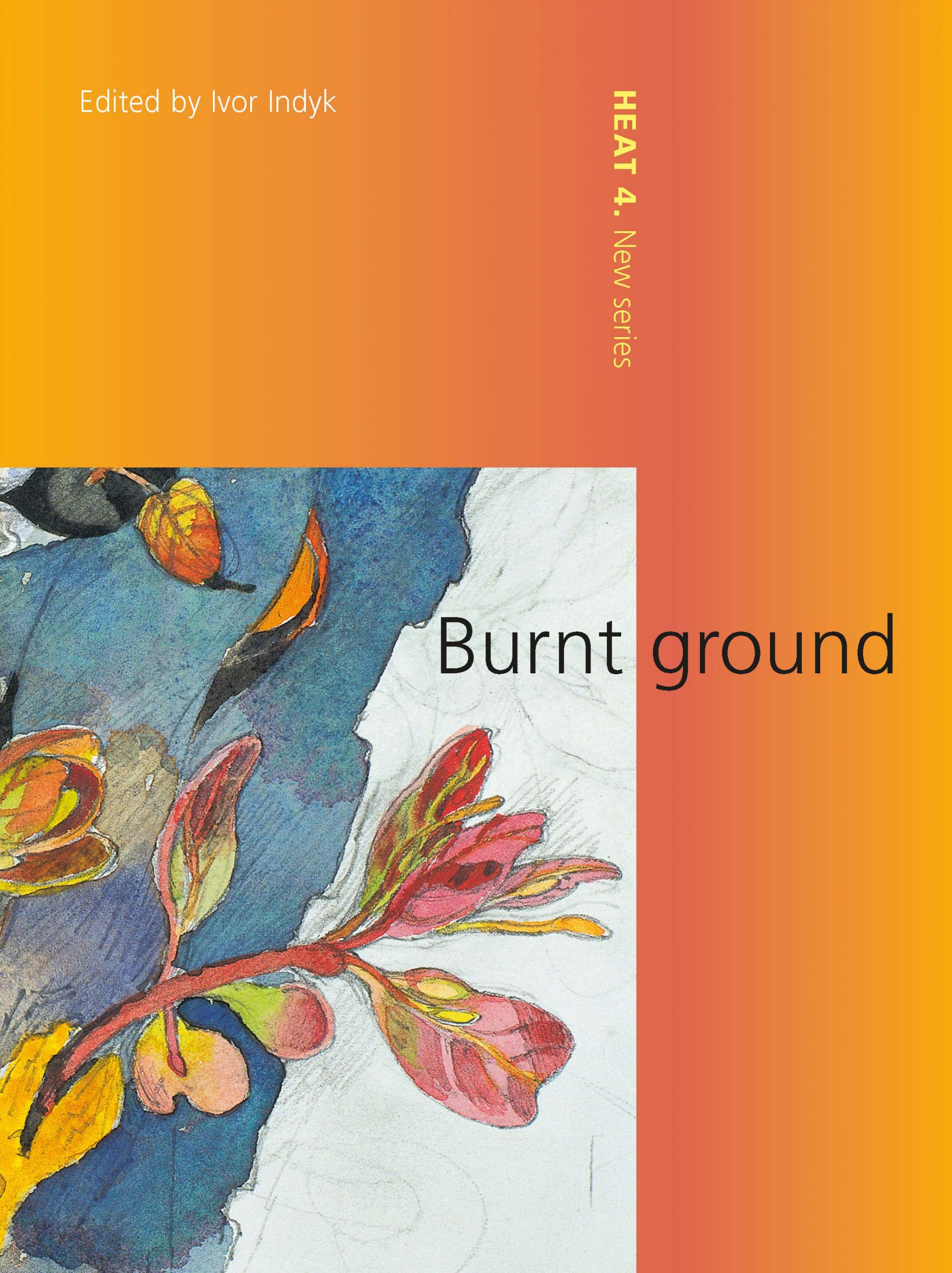Literary Studies
Wildflowering: The life and places of Kathleen McArthur by Margaret Somerville
‘Wildflowering’, a term coined by Judith Wright, describes the activity of searching for wildflowers in the bush. In letters between the poet and her friend, wildflower artist, writer and activist Kathleen McArthur (1915-2001), ‘the language of flowers’ becomes part of the mutual exchange of their friendship and epitomises the interactive and intimate relationship they maintained with landscape. Over the years, these women took the knowledge and love of their places into political campaigns to preserve the fragile ecology of an ancient coastland against the ravages of development and commercial exploitation.
... (read more)Any novelist prepared to name one of his characters ‘Fish Lamb’ and to have that character come back from the dead is obviously interested in Christianity on some level. It is also true that several of the big themes that run through Tim Winton ‘s fiction – guilt atonement, forgiveness – have a religious flavour. Nevertheless, Winton’s symbolism tends to have an open-ended quality. When his characters experience moments of spiritual awareness, moments that Winton has said are meant to be taken literally, these experiences are often depicted as a nonspecific form of mysticism or pantheism.
... (read more)This, of course, is literary Archibald Prize and, just like the art competition that annually sets Sydney’s cognoscenti abuzz, it will provide grist for plenty of arguments. Which of these profiles catches a passably good likeness of its subject? In which are the brush-strokes boldest and most compelling?
... (read more)Heat 7 edited by Ivor Indyk & Overland edited by Nathan Hollier and Kath Wilson
In ‘Ouah, Ouah’, a poem in the current issue of Island, Chris Wallace-Crabbe writes: ‘Dogs go shadowing our lives like history, / furbags of the quotidian.’ Literary journals are like that in some ways. Island, Heat, Conversations and Overland undoubtedly aspire to being more than alley mutts or underarm accessories. Indeed, they attest to the increased seriousness and politicisation of Australian literature. Like dogs, these journals shadow history. Like dogs, they also live in the shadows, lingering at the sliding door, waiting to be asked in; and they’ve evolved in different ways to achieve that aim.
... (read more)Vaclav Havel and Nobel Laureates Call for the Release of Imprisoned Burmese Writers
Fourteen Nobel Literature Laureates – along with Vaclav Havel, former President of the Czech Republic and renowned playwright, and Jiri Grusa, acclaimed Czech writer and President of International PEN – have urged Senior General Than Shwe of the Burmese Military Junta to release Nobel Peace Laureate Daw Aung San Suu Kyi and other imprisoned Burmese writers. These include 74-year-old editor U Win Tin, who is serving twenty years’ hard labour, and poet and journalist U Aung Myint, who was condemned to twenty-one years’ imprisonment. In a letter delivered to Burmese embassies in Bangkok, Berlin, London, New Delhi, Tokyo, Washington DC and other cities on April 13, Havel and the Laureates wrote:
... (read more)When E.M. Forster published Aspects of the Novel in 1927, he was not writing as a critic, and the success of the book is due to precisely that. Forster gives us the intuitive judgements of a novelist – a series of rough observations full of verve. James Wood’s How Fiction Works is indebted to Forster’s study and turns on like questions (what constitutes a convincing character? How does narrative style shape a novel? What defines a telling detail?). But while he poses theoretical questions, Wood does not offer theoretical answers. And unlike Milan Kundera in The Art of the Novel (1985), Wood is not interested in the way writers gloss their own creations.
... (read more)From a tiny corner in the House of Fiction: Conversations with Iris Murdoch edited by Gillian Dooley
Iris Murdoch’s first book of philosophy, Sartre: Romantic Rationalist, was published in 1953 when she was thirty-four years old. A year later, Under the Net appeared, her first published novel. If not for the war and its aftermath – Murdoch worked for the United Nations Relief and Rehabilitation Administration for two years – her first published works may have appeared earlier. And yet the years 1944 to 1953 provided fertile ground for the novelist. It was the period of her deep attachments with the great writers and philosophers (Raymond Queneau, Elias Canetti and Franz Steiner) who would seed many of the fictional characters in her future work. She wrote several novels before Under the Net – four or six, she was never quite clear. And for more than forty years she wrote prodigiously: twenty-six novels, five works of philosophy, several plays and a collection of poetry.
... (read more)Dictionary of Literary Biography Volume 230 edited by Selina Samuels & Dictionary of Literary Biography Volume 260 edited by Selina Samuels
The Biographa literaria, to coin a phrase, began publication in 1978 and has now reached volume 272, Russian Prose Writers between the World Wars. It is a major work of reference that not only includes creative writers but also critics, publishers, journalists, historians and book collectors: ‘figures who in their time and in their way influenced the mind of a people.’ Most of the volumes deal with American and British literature, but others cover the literatures of Canada, a number of European countries, Latin America, Russia, Africa, Japan, and the literatures of classical Greece and Rome. Now Australia has been honoured with a place in this monumental work and the chance to have its literature on show around the world. The two Australian volumes published to date cover writers whose first important work was published up to the end of 1950. Two more volumes are planned to bring the story up to 2000.
... (read more)The fourth issue in the new series of Heat, Burnt Ground, reproduces on the cover a segment of a beautiful watercolour by John Wolseley, wrought from his six-month stay in Sydney’s fire-flattened Royal National Park in early 2002. Along with many noteworthy contributions, a further eighteen colour pages of Wolseley’s lush sketches, entitled ‘Bushfire Journals’, make it an issue to treasure. Wolseley has written a diary to accompany his pictures, which tells us how ‘new shoots at the base of many of the burnt shrubs … spume out of their black bases like an army of bunsen burners’, and also illumines his unorthodox approach. With the help of a friend, he rubbed a vast roll of paper along the trees and over the ground: ‘a Banksia[’s] …sooty knobbly bark left a passage of black scales on the paper as if a huge reptile had moved over it.’ Wolseley’s narrative is more uneven than his sketches, but offers valuable insights into the way a painter digests and regurgitates his chosen material.
... (read more)When Arthur Phillips conjured up the cultural cringe fifty-two years ago – he was Arthur then, only later becoming the more formal A.A. Phillips – he had little idea how that phrase would come to haunt us. When interviewed by Jim Davidson in 1977, Phillips was rather dismissive about his original 1950 Meanjin article, although he noted that it was ‘twice nearly strangled in infancy’, first by editor Clem Christesen who hadn’t liked it, and then by a member of the Commonwealth Literary Fund Board who urged him not to include it in his collection The Australian Tradition (1958). But he attributed the popularity of the phrase to its being ‘catchily alliterative – and alliteration is the most facile stylistic trick there is’.
... (read more)

